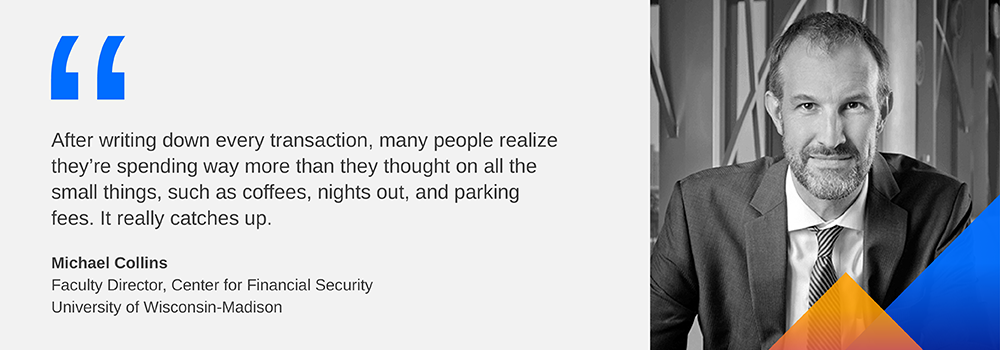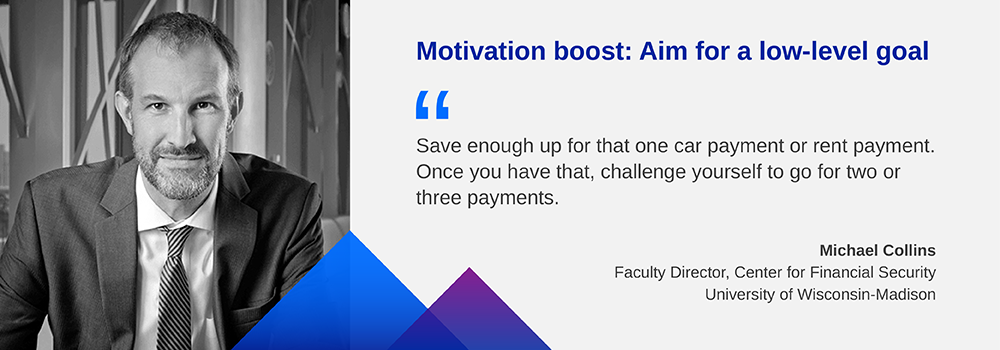The OppU Money Guide: A Financial Management Tool

Money Guide: Take Control of Your Finances
The tips and tools in this guide will walk you through four major areas of managing your money — budgets, financial planning, income, and bills — and help you prepare for the most unexpected financial circumstances.
Budgeting doesn't have to be complicated. Master your budget with these three tips.
No. 1: Stretch your dollar
- Come to terms with your income and bills
- Find alternatives to mainstream services
- Schedule your bills to work with payday
No. 2: Make a plan
- Spread out your bills and obligations
- Identify where to skimp and reallocate funds
- Schedule automatic transfers to savings
No. 3: Hone your spending habits
- Track your spending
- Identify spending habits
- Avoid retail therapy

Does this sound like you? Let's take a look at your household.
Your Household
Maybe you live alone or maybe you have a spouse and children. Regardless of how many people live under your roof, your household situation and finances are most likely intertwined.
Couples
Talking about finances with a partner may not come naturally. In fact, it can be downright stressful. Here are 4 quick tips to support your money talk with your partner:
- Don’t be embarrassed or let shame stop you from talking about money
- Zero in on your feelings about money
- Come clean to your partner
- Hold each other accountable
Families
Adding children to the mix makes finances even more complex. From child care to medical bills, additional family members translate to higher expenses.
Money and kids
Formula. Wipes. Diapers. Child care. Those baby expenses can add up quickly. Are you prepared to cover it?
Make the most of your family budget:
- Start saving as soon as possible
- Prioritize quality and safety over the latest and greatest gear
- Identify potential tax breaks and employer benefits
Learn more about how to budget for a baby without going into debt.
Singles
Single Americans are likely to stick to a budget and have enough money to cover monthly essentials, yet they still have financial challenges.
Money and you
Does this sound like you?
- “I do not invest in a retirement account.”
- “I typically live paycheck to paycheck.”
- “I feel that I cannot get ahead financially.”
- “I have more than $15,000 in personal debt.”
It is possible to change your fate and start saving now:
- Save before you spend - even if it’s just a little
- Set it and forget it with automatic transfers
- Start small - even with $10/week
- Give yourself an allowance
If you're living paycheck to paycheck these 5 budget strategies may help.

Your Income
Here are 3 expenses financial decision-makers may struggle to pay:
- Food/groceries
- Personal debts
- Medical expenses
Income options and resources
Are you coming up short on your bills each month? Here are some tips for boosting your income.
- Explore available resources
- Give yourself a raise or new savings opportunities
- Consider passive income opportunities
- Adjust your income tax withholdings
You may be eligible for:
- Government relief checks
- Unemployment benefits
- Nonprofit relief funds
Take advantage of employer benefits:
- Health savings accounts
- Commuter plans
- Pretax dependent care
Learn more about pretax savings options to help your bank account.
Earn money without investing much effort or time:
- Rent a room in your home
- Rent out your car
- Create an online course
Learn more about passive income ideas for trying times.
Did you receive a tax refund?
Problem: Many Americans receive a tax refund and view it as free money — but it’s not.
A tax refund indicates:
- You overpaid throughout the year
- The government is reimbursing you for money that was already yours
- Your regular take-home pay could be higher
Learn how to read:
Your Bills
Personal debt can impact your ability to pay for necessities.
What is a utility bill?
The basic resources that service your home:
- Water
- Gas
- Electricity
- Internet
- Phone
- Cable
Learn how bad credit can affect your utility bills.
Other monthly bills:
- Rent/mortgage
- Car payment
- Childcare
- Other personal debts
Paying bills
What options are there for paying bills?
- Check
- Debit/credit card
- Bank transfers
- Money order
- Prepaid debit card
Paying bills with cash:
- Ask for a receipt
- Be aware of fees
- Request a discount
Red flag: If a property management company expects cash payments and does not offer receipts.
If you're paying bills by check, here is a step-by-step checklist for filling one out:
- Write the date
- Write the name of the company or person you are paying
- Write the amount you owe in numerals
- Write out the amount you owe in words
- Optional: Note the purpose of payment
- Sign your name
Pay on time to avoid:
- Negative impact on your credit score
- Loss of security deposits
- Late fees and penalties
- Termination of services
Can’t pay your bills?
- Call your lenders and service providers
- Find out if you’re eligible for government relief
- Check for potential deadline extensions, ie federal student loans
The information contained herein is provided for free and is to be used for educational and informational purposes only. We are not a credit repair organization as defined under federal or state law and we do not provide "credit repair" services or advice or assistance regarding "rebuilding" or "improving" your credit. Articles provided in connection with this blog are general in nature, provided for informational purposes only, and are not a substitute for individualized professional advice. We make no representation that we will improve or attempt to improve your credit record, history, or rating through the use of the resources provided through OppU.


